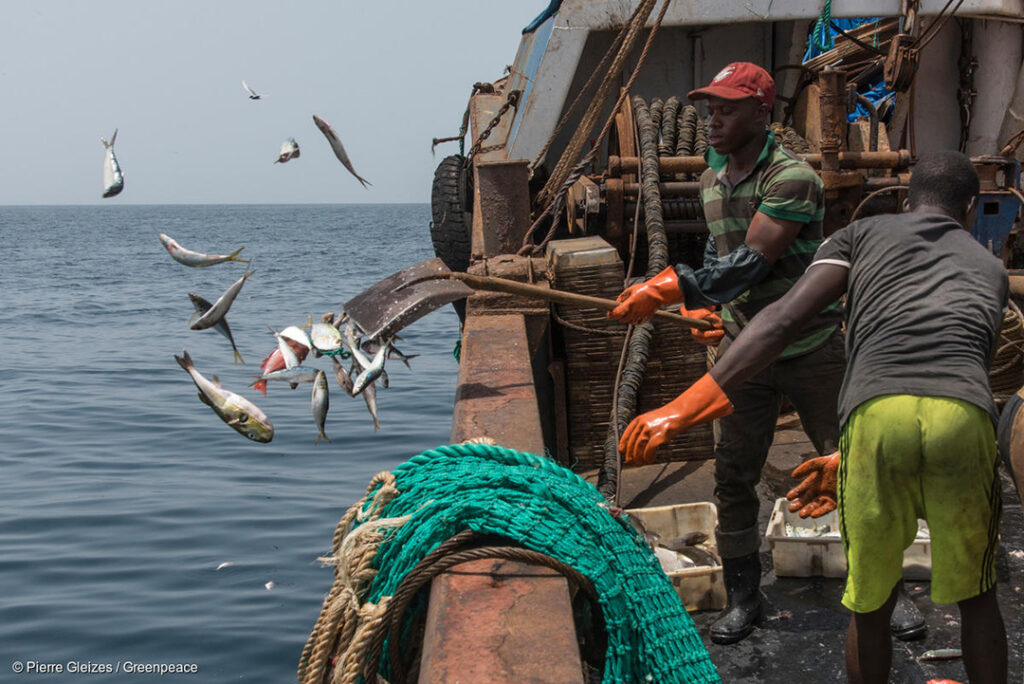ADF STAFF
Brando Brayend Tewuh, a 29-year-old Indonesian crew member aboard a Chinese fishing vessel, was so tired of being beaten and starved that he and three other crew members jumped from the trawler off the coast of Somalia in August 2021.
Their attempt to reach shore failed. After floating in the sea for hours, Tewuh and two others were rescued by the boat from which they leapt. Another crew member, Aji Proyogo, is believed to have drowned.
“I will never, ever work on a ship again,” Tewuh told This Week in Asia.
Stories of mistreatment of workers aboard Chinese fishing vessels are not rare. In the past couple of years, fishermen from Kenya and Ghana have publicly alleged that Chinese captains and crew members beat them, provided inadequate food and shelter, and forced them to work long hours — after their contracts expired, with no additional pay.
Some said they were also forced to engage in illegal fishing practices, such as “saiko,” when fish is transferred from a trawler to a large canoe to hide the origin of the catch. The canoes can carry about 450 times more fish than an artisanal fishing canoe.
Shark finning was also rampant. After the fin is severed, the shark is thrown back into the water to die.
The Environmental Justice Foundation (EJF) conducted anonymous interviews with Ghanaian workers who worked on a Chinese trawler in 2020. Under Ghana’s national fisheries laws, 75% of an industrial trawler’s crew must be Ghanaian nationals. Of the 10 Ghanaian crew members EJF interviewed, all had either been abused or seen crew members abused.
“Violence occurs all the time,” one crew member told EJF. “When they pour the fish, those who are not fast, the captain will take anything he will get and hit you with it. Whether a stone or anything they will get. Especially the captain.”
Ghanaian fishermen told EJF they were threatened with violence if they needed to rest or stretch. When a Ghanaian cook tried to prepare fish soup for the Ghanaian crew, the Chinese captain hit him four times before dumping the soup into the sea.
Fisheries observers were not spared brutal treatment, the crew members said.
Some saw a fisheries observer threatened with a metal bar when the observer attempted to preserve fish as evidence of illegal fishing. Another observer was threatened with a stick if he reported that the trawler illegally discarded fish at sea. Yet another observer was threatened with a knife when the observer tried to prevent the dumping of juvenile fish at sea.
Then there is the case of Emmanuel Essien, a 28-year-old Ghanaian fisheries observer who went missing in 2019. Essien worked on board the Chinese trawler Meng Xin 15 when he captured video of the crew engaging in saiko.
Two weeks after Essien took the video and made a report to local authorities, he disappeared from his cabin on the Meng Xin 15. According to the EJF, a police report said no signs of foul play related to Essien’s disappearance were found, but his family doesn’t expect to see him again.
Among crew members, inexperienced fishermen are perhaps treated the worst.
“The Chinese … always when you are a new sailor and you are not fast with the sorting of the fish they will hit you with anything they will get,” a crew member told EJF
Besides the human rights abuses, Chinese trawlers are decimating West African fish stocks due to overfishing and illegal fishing. China has the world’s worst illegal, unreported and unregulated (IUU) fishing record, according to the IUU Fishing Index, and has targeted the region since the mid-1980s.
Estimates suggest that the Chinese bottom trawl fleet catches 2.35 million tons of fish, valued at more than $5 billion, in the region annually. That’s about half of China’s total distant-water catch, according to the EJF. Between 2015 and 2019, Ghana was the most targeted West African country, followed by Sierra Leone and Mauritania.

